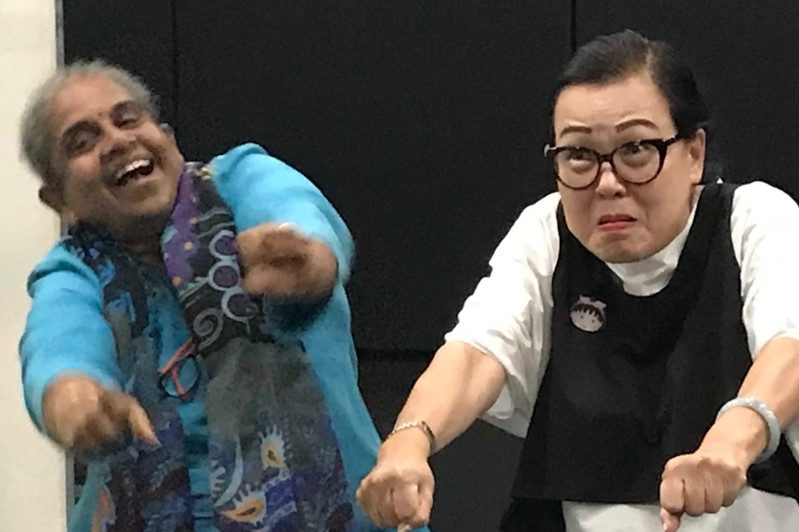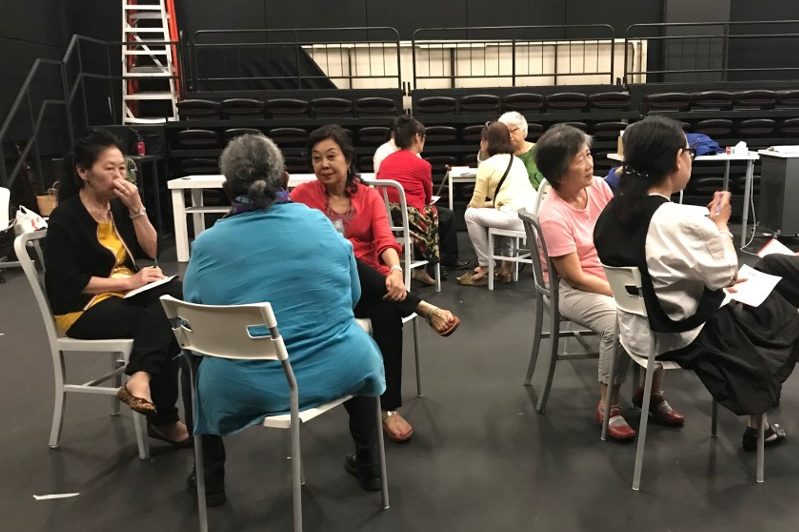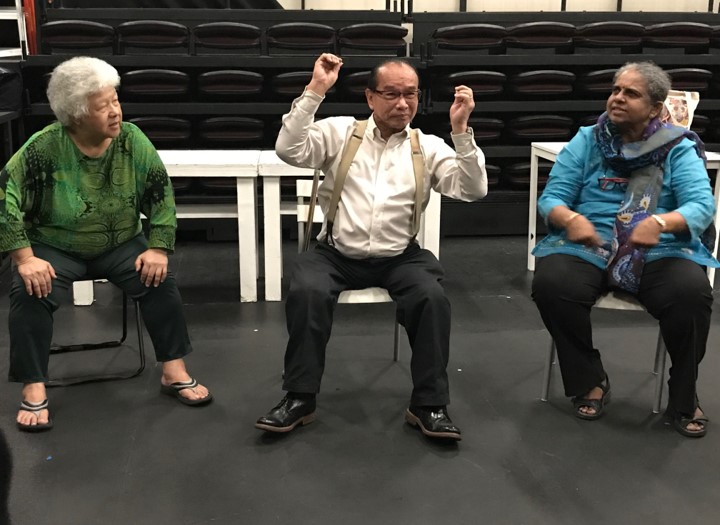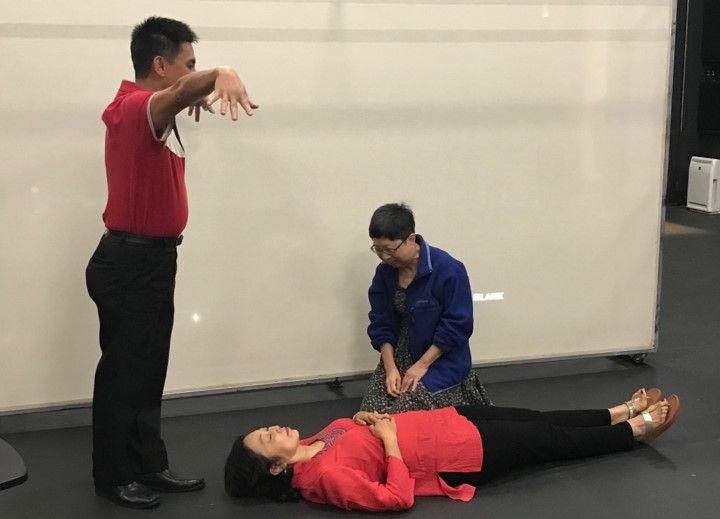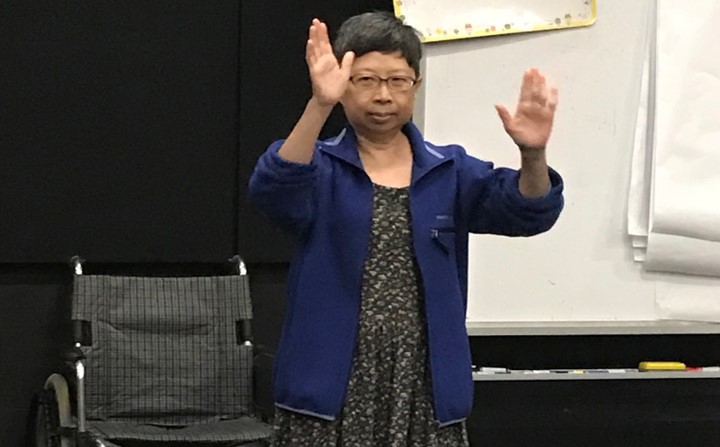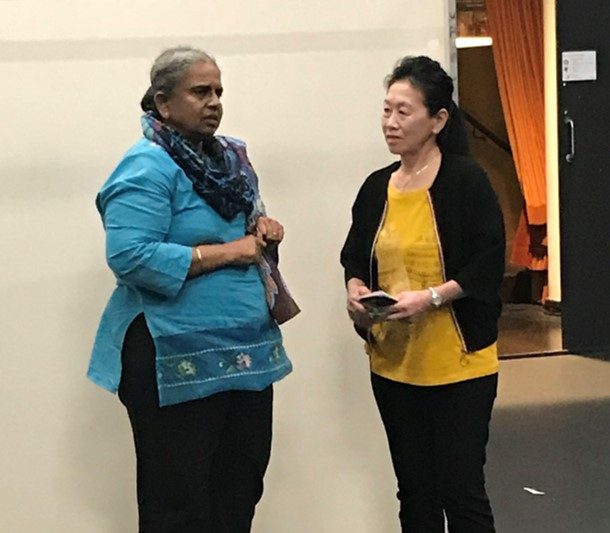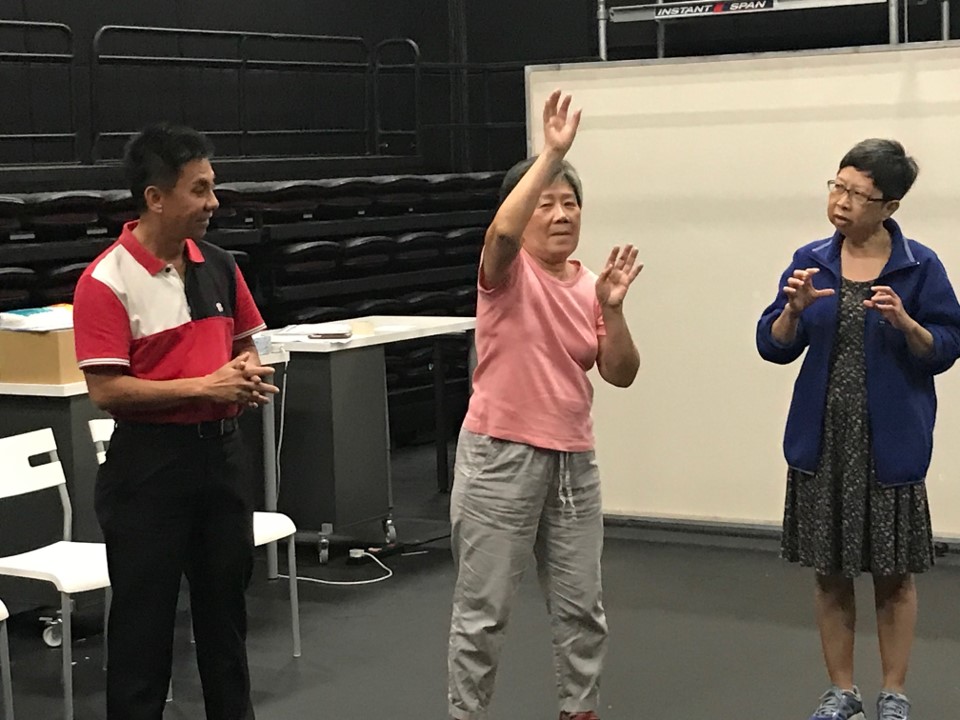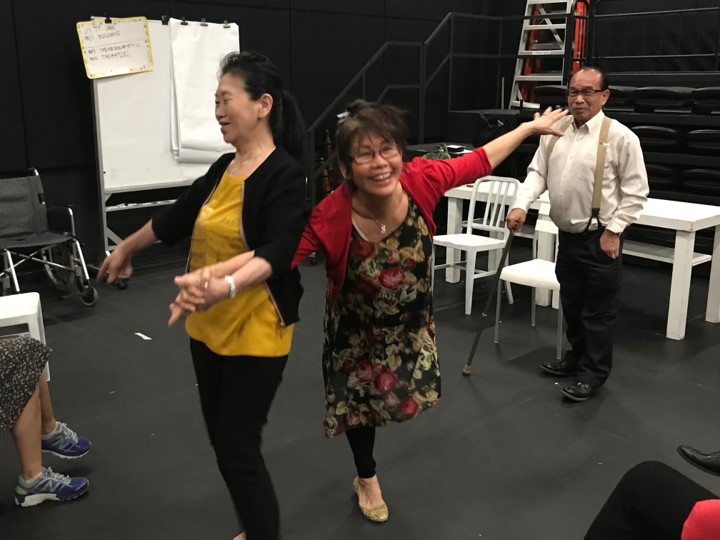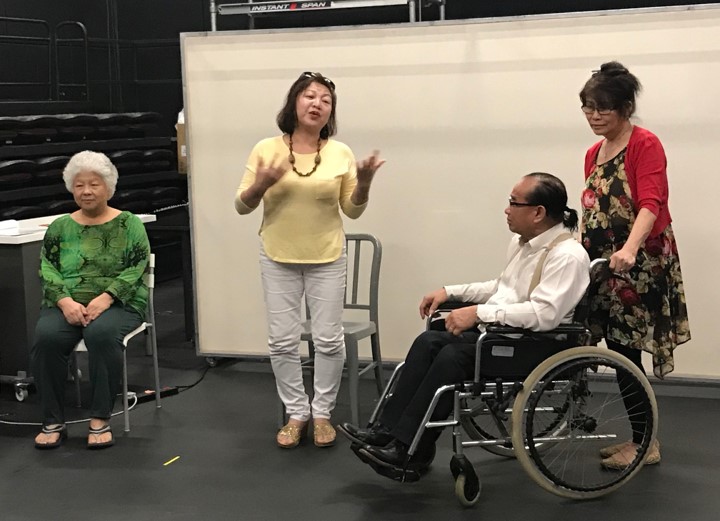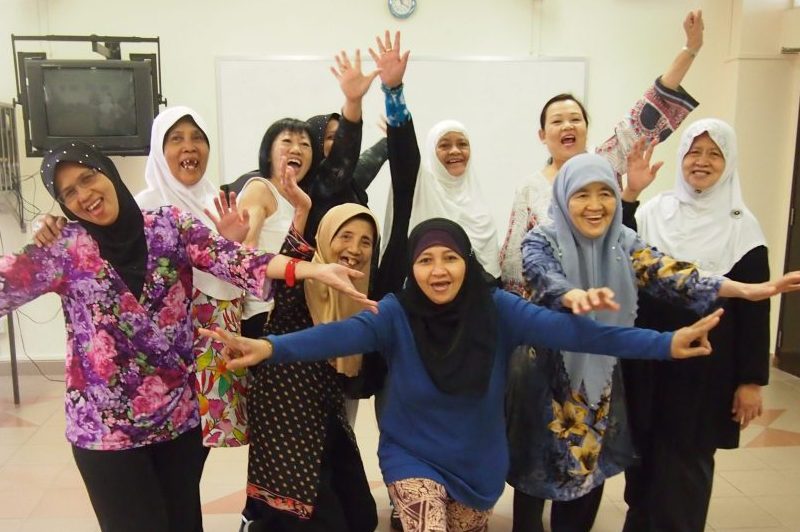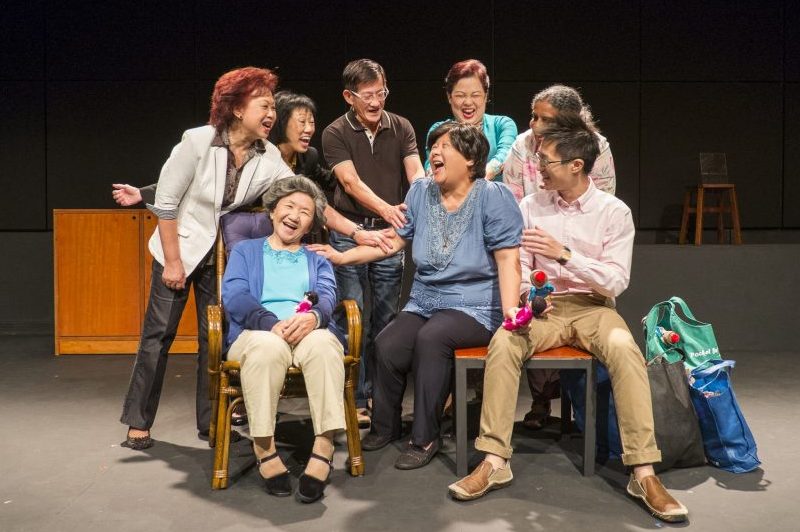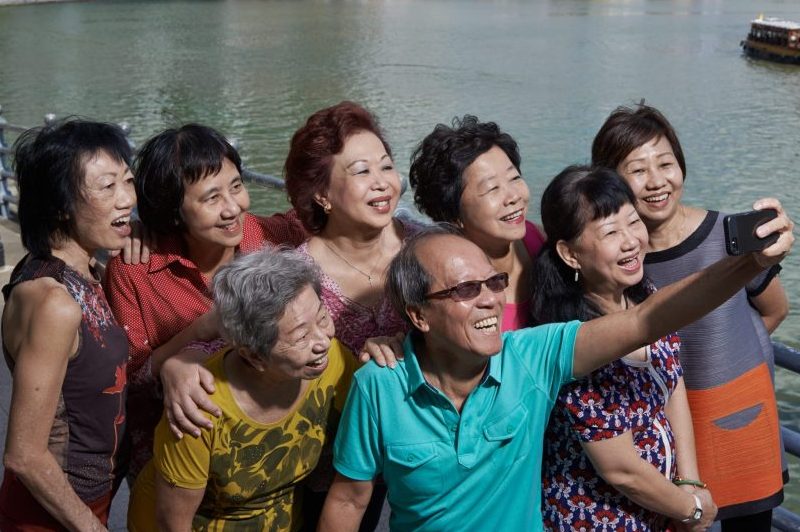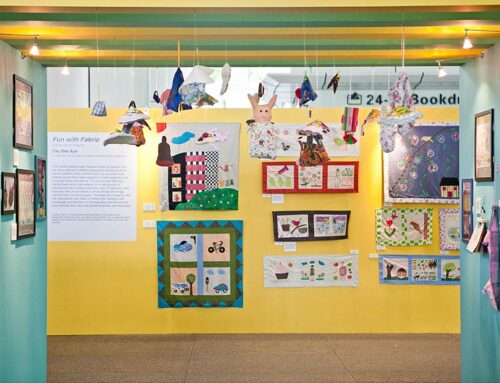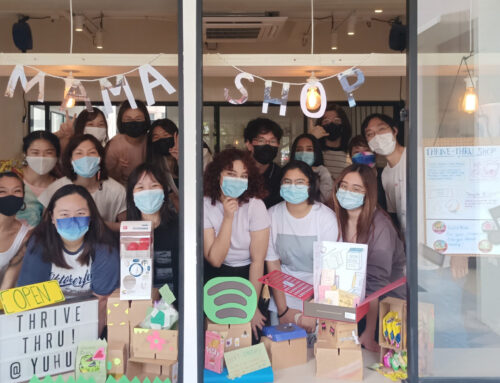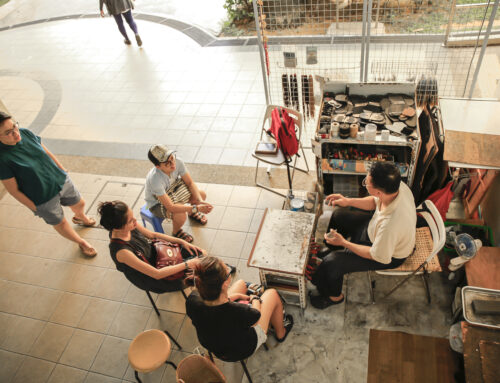Library / Field Studies
Never Too Old to Act: Theatre for Seniors in Engaging, Building and Developing Communities
Library / Field Studies
Never Too Old to Act: Theatre for Seniors in Engaging, Building and Developing Communities
The quiet of a cool December evening at The Necessary Stage (TNS) was interrupted by a boisterous gathering of 10 senior citizens chatting on a range of topics from travel plans to chronic joint pains. Within minutes, they morphed into a collective of mime artists as members mobilized both arms (and sometimes legs) into sculpting imaginary gifts for one another. Though they slipped into chatter from time to time, the seniors were enthusiastic to learn and focused on improving their bodily expressions. They were also vocal – an improvised skit created by three members led to an open, serious debate about what constitutes and determines forgiveness.
It was Theatre for Seniors’ (TFS) monthly gathering, led by different members on a rotational basis and organised around themes like grief, death, ageing well, love and adversity.
From community engagement to capacity building
Launched in 2008 by The Necessary Stage (TNS), TFS started as a three-year programme to train participants aged 50 and above in various aspects of theatre production. Seniors were trained in acting, directing, playwriting, backstage production and administration by theatre professionals. Under the training programme, the seniors put up a yearly performance series known as Encore, a showcase for their families and friends.[1]
TFS was the first of its kind in Singapore’s theatre scene. TNS’ Artistic Director, Alvin Tan, conceptualized this to engage retirees who had limited outlets for social activities. It was a space for seniors to learn to coordinate body movements, memorise dialogue, and grapple with the difficulties of working with individuals of diverse backgrounds. Differences in leadership direction led a group of seniors to break away to form Ageless Theatre in 2011, which remains active in training seniors and putting up performances.
Despite the end of the three-year programme and funding cuts, TNS continued to engage the seniors through short-term workshops and meet-ups until today. They felt it was important to grow the budding community – the members were keen to continue learning and the regular interactions allowed them to develop the mutual trust and familiarity which were important for community building. Furthermore, their skills and experiences were assets that could be tapped on for future performances. Through the short-term acting workshops, new members continuously joined the original TFS cohort. In fact, eight seniors were trained to conduct Basic Acting Workshops and have since reached out to more than 200 senior citizens in various communities around Singapore.
Julius Foo, a long-time facilitator for TFS, notes: “The good thing about seniors is that they have life experiences… They are strong (and) know what they want and what they don’t want. They are curious…(and have) started to explore and expose themselves…to see opportunities and discover their individual strengths and interests.” While Alvin’s ageing parents, the source of inspiration behind TFS, eventually did not join, several participating seniors have discovered a newfound purpose post-retirement.
To Michael Tan, a semi-retired businessman, TFS was an unexpected turning point when he turned 60. Though he started out wanting to find a leisure activity, since the completion of the training programme, he has acted in several theatrical productions, a commercial film, and performed the demanding role of an ailing and emotionally unstable father in The Malay Man and His Chinese Father, where he performed clad only in undergarments. An introvert who claims he is not attuned to sharing personal stories in public, he reflects upon his unexpected acting career: “It is the opportunity to express (my)self and most importantly, to be able to engage (my)self into a particular character of the play…which can be an entirely different person from (who) I am.”
Sharing similar interests about gaining exposure is Sylvia Liew, a former English Language and Literature teacher. She joined TFS’ Acting and Devising Workshop in 2017 after searching for an artistic avenue and was intrigued by the practice of devising theatre: “There’s a lot of learning. You don’t learn from a textbook, but you learn from relating to other people. You learn from other people’s experiences, what they bring to the script itself.” Sylvia satisfies her passion through her continued involvement in TFS’ monthly gatherings and workshops, as well as through participation in Glowers, another community theatre formed by senior citizens.
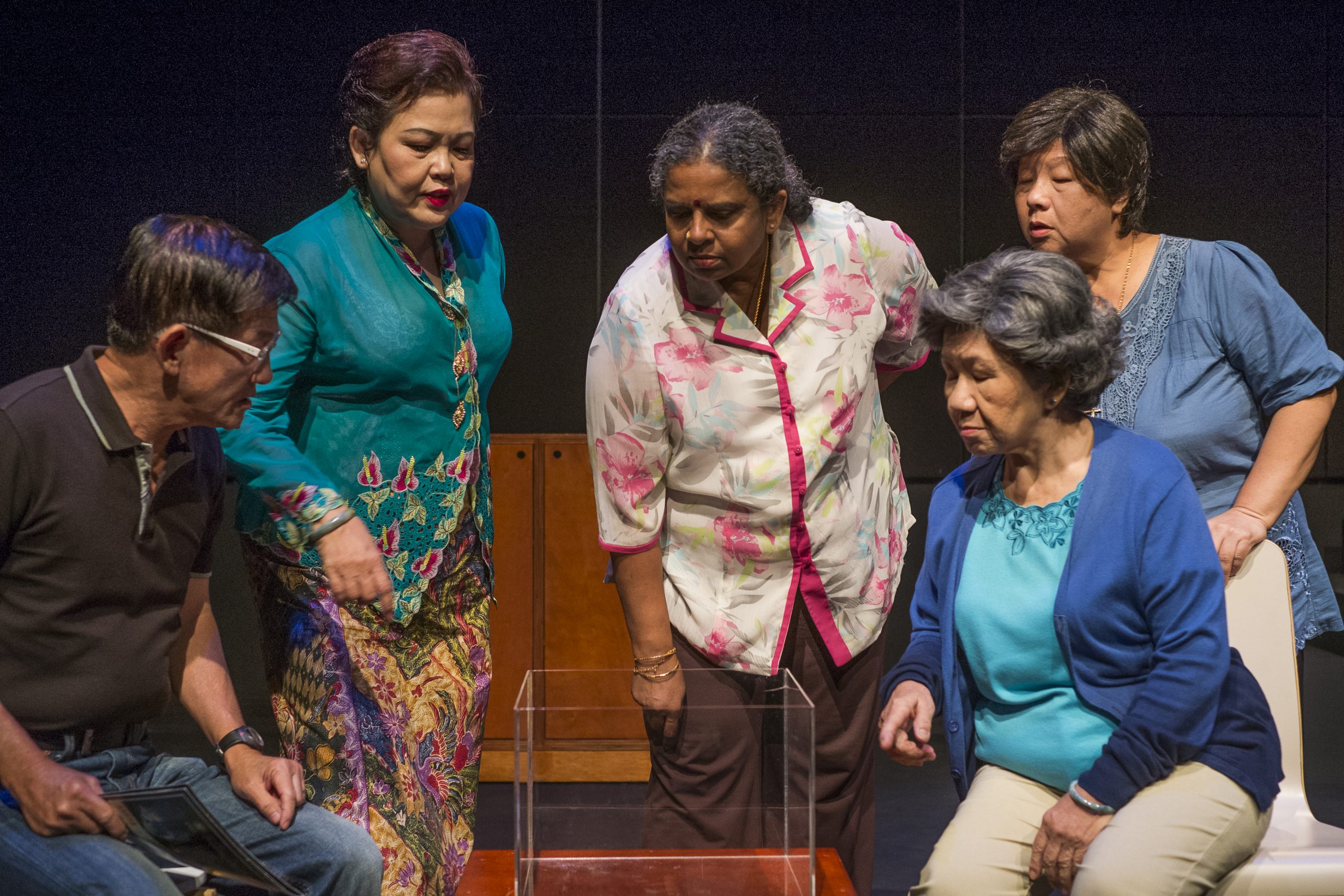
Towards Community Development
Currently there are around 50 active members with TFS. With acting emerging as the greatest strength among the seniors, TNS intends to further develop their understanding and application of theatre, moving them beyond entertainment towards content creation. In the coming year, the seniors will consolidate the ideas generated from their monthly gatherings and decide what to do with their shared experiences and intellectual capital.
This would allow the seniors to deepen their theatre practice and “self-activate” on what they would want to do with theatre. According to TNS’ Project Manager, Karmen Wong: “TNS will always be happy to host the space for them, to give them the space to experiment…but the genesis of ideas has to come from them.” This entails the challenge of guiding the seniors towards “inter-culturalism” – the exchange, understanding and acceptance of communities of different demographics, beliefs, values, and cultural systems – which is the approach of TNS’ theatre practice.
Ultimately, TNS hopes the seniors would be able to engage meaningfully with communities different from themselves – the youth, LGBT groups, non-artists, migrant workers and bureaucrats – and become more inclusive. To Alvin, this is a work-in-progress: “We are the mediators…how do we develop their understanding of bridging with other communities… How do they buttress their roots into (the intercultural approach) and learn the lessons of community development?” This however, involves giving time for leadership and trust among members to emerge, as well as time for members to orientate towards collective ownership of this desired inclusivity.
We are the mediators… how do we develop their understanding of bridging with other communities… How do they buttress their roots into (the intercultural approach) and learn the lessons of community development?
To the next 10 years?
At its tenth-year milestone, TFS has been instrumental in nurturing a community of seniors passionate about learning and practicing theatre-making; offering opportunities to perform or work in theatre productions; providing a conducive interactional space for inter-community exchanges; and building the seniors’ collective capabilities in theatre practice. In fact, some TFS members are using their theatre-making skills to engage professional communities. For instance, a few seniors have acted as patients in training courses conducted by public hospitals such as the “Standardized Patient” programme, which allowed doctors to improve their communication skills with senior patients in imaginary scenarios.[2]
Theatre is just a tool to enhance life – as long as it betters their lives then TFS would have achieved its purpose.
Julius believes, like in any community, the bonding and friendships forged among the seniors are important to the sustainability of TFS; where neither fame nor money are motivations for the seniors’ continued participation:“Theatre is just a tool to enhance life – as long as it betters their lives, then TFS would have achieved its purpose.”
Images if not specified are by The Necessary Stage.
[1] The group has also performed in various events such as the PAssion Arts Month (2013 to 2015), the M1 Singapore Fringe Festival (Singapore’s first senior forum theatre production, Take Me or Leave Me?, in 2014), Esplanade’s A Date with Friends (Rise of the Phoenix in 2015, Mosquito in 2016 and Family Secrets in 2017), as well as TNS’ main season production (Pioneer (Girls) Generation in 2015). TFS members have been nominated in the Best Ensemble category by The Straits Times’ LIFE! Theatre Awards for their performance in October (2012) by TNS and Twelve Angry Men (2013) by Nine Years Theatre. The seniors also acted in advertisements, television productions, short films and even full length feature films.
[2] A similar programme is called the Simulated Patient programme in Lee Kong Chian School of Medicine, Nanyang Technological University.
About Theatre For Seniors
The Necessary Stage’s Theatre for Seniors (TFS) has been in existence for 10 years, growing and evolving with the support from partners including the National Arts Council, Council for 3rd Age, Lee Foundation, Kwan Im Thong Hood Cho Temple and BinjaiTree. This ground-breaking programme continues to provide seniors an avenue to impart their personal stories, and adds new spectrums to the way they look at their life-history and cultural identity. To celebrate the tenth anniversary of the programme, Theatre For Seniors will be presenting a production in the Marine Parade Community Club Theatrette in March 2019. We invite you to join us as we share the stories from our community.
To find out more about Theatre For Seniors, please contact Karmen at karmen@necessary.org.
About the writer
WONG SHIAU CHING is an independent researcher who did her postgraduate research at The University of Melbourne on activist communication in Hong Kong and Taiwan. Her current research interests include community engagement, and the heritage preservation and civic technology movements in Singapore and Taiwan. She also volunteers as a heritage tour guide with My Community – a civic group which documents and promotes the community heritage of Queenstown and Bukit Merah – and as an outreach volunteer for Cassia Resettlement Team.


